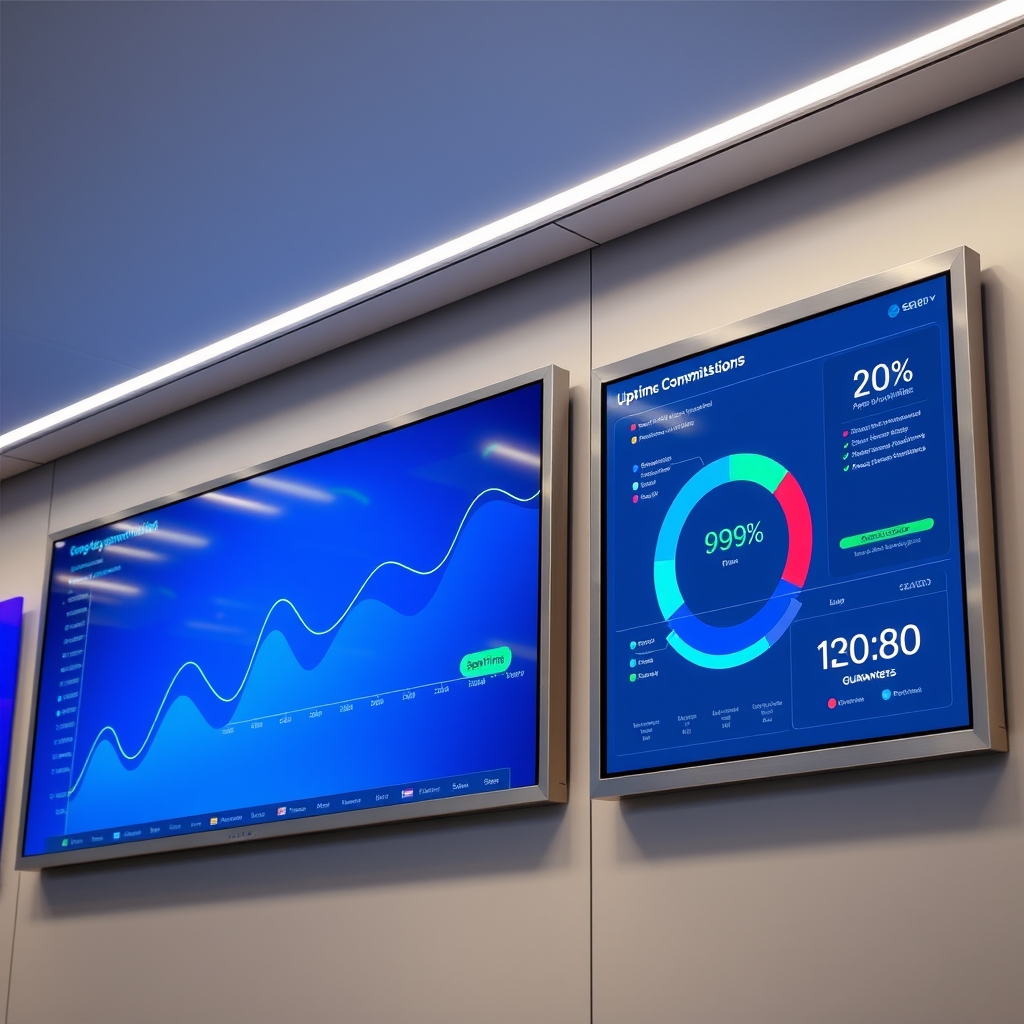How to Set Up {Alert Type} for API Response Time in Minutes

How to Set Up Alert Type for API Response Time in Minutes
Understanding Uptime API
The Uptime API is a powerful tool designed for comprehensive monitoring and uptime tracking of APIs, websites, and services. It enables developers and businesses to monitor service availability, track performance metrics, and receive real-time alerts through various notification channels.
With the Uptime API, you can ensure that your services are always available and performing optimally. This is crucial for maintaining user satisfaction and operational efficiency.
For more information, visit the Uptime API website.
Key Features of Uptime API
The Uptime API offers a range of features that make it an essential tool for monitoring your APIs and services:
- Real-time monitoring with 60-second check intervals
- Customizable alert notifications via email, SMS, webhook, and Slack
- Performance metrics including response time, uptime percentage, and error rates
- Historical data and trend analysis
- SSL certificate monitoring and expiration alerts
- Keyword monitoring for content validation
- Multi-location monitoring for global coverage
Monitoring Types Supported by Uptime API
The Uptime API supports various monitoring types, ensuring that you can track the performance of different services effectively:
- HTTP/HTTPS APIs
- Public APIs
- Private APIs
- Keyword-based monitoring
- Custom status codes
- Response time tracking
Setting Up Alerts for API Response Time
Setting up alerts for API response time is crucial for proactive monitoring. The Uptime API allows you to configure alerts based on specific conditions, ensuring that you are notified when your API performance degrades.
Alert Configuration Example
Here’s an example of how you can configure an alert for API downtime:
{
"success": true,
"data": {
"alert": {
"id": "alert_789",
"name": "Downtime Alert",
"type": "email",
"recipients": [
"[email protected]"
],
"conditions": {
"status": "down",
"duration": "5 minutes"
},
"enabled": true
}
}
}Benefits of Real-Time Alerts
Real-time alerts allow businesses to respond quickly to issues, minimizing downtime and ensuring service reliability. By setting alerts based on response time, you can:
- Identify performance bottlenecks before they affect users
- Ensure compliance with service level agreements (SLAs)
- Improve overall user experience by maintaining optimal performance
Performance Metrics and Insights
The Uptime API provides valuable performance metrics that can help you understand your API's health and performance over time. Key metrics include:
- Uptime percentage
- Average response time
- Maximum and minimum response times
- Total checks and successful checks
- Failed checks
Example Performance Metrics Response
Here’s an example of the performance metrics you can retrieve:
{
"success": true,
"data": {
"metrics": {
"uptime_24h": 99.98,
"uptime_7d": 99.95,
"uptime_30d": 99.92,
"avg_response_time": 234,
"max_response_time": 1250,
"min_response_time": 89,
"total_checks": 1440,
"successful_checks": 1439,
"failed_checks": 1
}
}
}Use Cases for Uptime API
The Uptime API is versatile and can be applied in various scenarios across different industries. Here are some common use cases:
- E-commerce platforms monitoring payment APIs
- SaaS applications ensuring service availability
- Mobile apps monitoring backend services
- Financial services tracking critical APIs
- Healthcare systems monitoring patient data APIs
- Gaming platforms monitoring real-time services
- IoT applications monitoring device connectivity
Frequently Asked Questions
What types of alerts can I set up with Uptime API?
You can set up alerts via email, SMS, webhook, and Slack, allowing you to choose the best notification method for your needs.
How often does Uptime API check my services?
The Uptime API performs checks every 60 seconds, providing real-time monitoring of your services.
Can I monitor private APIs with Uptime API?
Yes, Uptime API supports monitoring for both public and private APIs, ensuring comprehensive coverage for all your services.
What performance metrics does Uptime API provide?
Uptime API provides metrics such as uptime percentage, response time, error rates, and more, giving you insights into your API's performance.
Where can I find more information about Uptime API?
You can visit the FAQs page for more information.
Conclusion
In summary, setting up alerts for API response time using the Uptime API is a strategic move for any business that relies on APIs for its operations. The ability to monitor performance in real-time and receive immediate alerts ensures that you can address issues before they escalate, maintaining high levels of service availability.
The Uptime API stands out as a superior choice for monitoring due to its comprehensive feature set, including customizable alerts, detailed performance metrics, and support for various monitoring types. By leveraging the Uptime API, businesses can gain valuable insights into their API performance, enabling data-driven decision-making.
As the digital landscape continues to evolve, the importance of reliable API monitoring will only increase. Future possibilities with the Uptime API include enhanced integrations with other monitoring tools, advanced analytics capabilities, and even more customizable alert options. By investing in Uptime API, you are not just ensuring uptime; you are also positioning your business for future success.
For more details on pricing and features, visit the pricing page and explore the features page to see how Uptime API can meet your monitoring needs.